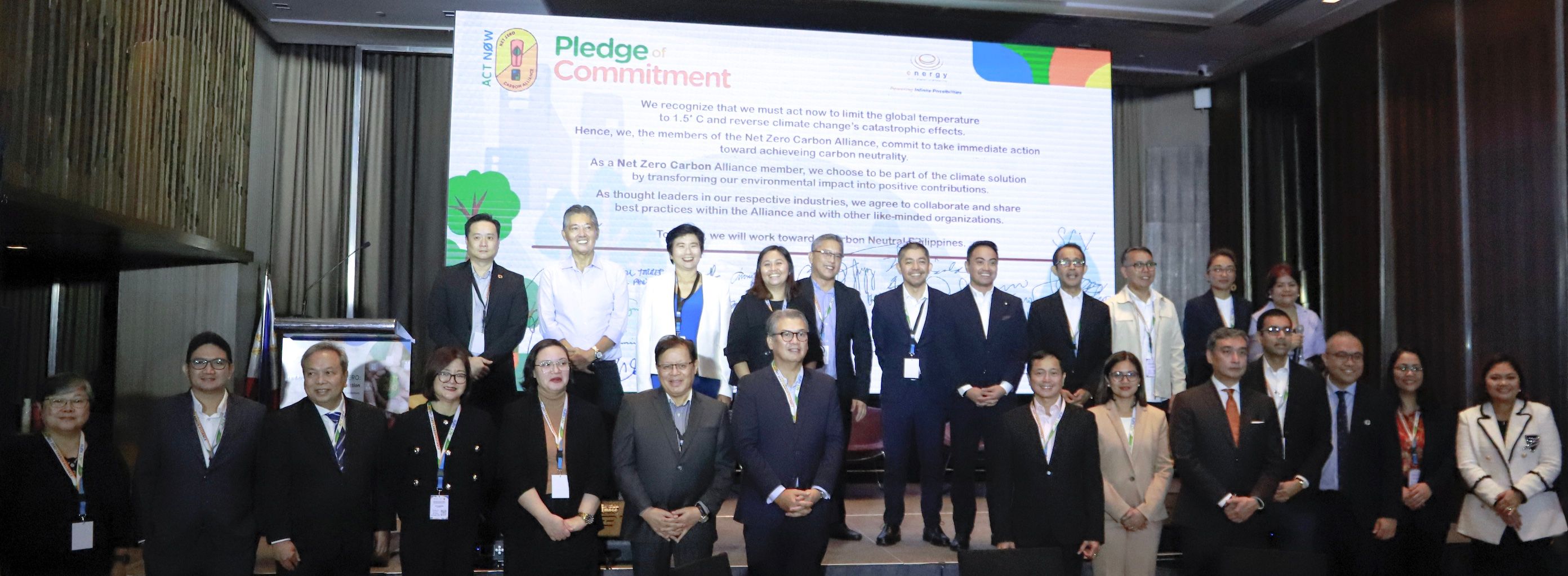Philippine businesses to tackle serious re-assessment of net zero pledges
At NZCA conference this September
At A Glance
- Manifestly, there are not too many corporations in the Philippines yet that have laid down science-based targets on their net zero ambitions; and while talk is cheap, local corporations still have to concretely pursue clear and transparent reporting metrics on what they have been achieving so far on lowering their carbon footprints.
- Beyond having it as part of a glossy brochure on their sustainability reports, Philippine businesses still typically use 'net zero goal' as image-boosting public relations tool, instead of really having it as a realistic measure of managing their carbon emissions – that's the reason why the country is rated internationally to have weak environment social and governance (ESG) reporting performance.<br>
While many Philippine corporates are just riding the green energy wave with empty rhetoric and some have been merely using "net zero pledges" as superficial propaganda tool in their business playbook, the genuinely serious ones are promising to re-assess commitments with concrete baselines and tangible measures when it comes to their decarbonization journey.
In particular, the Net Zero Carbon Alliance (NZCA), which is an aggrupation of private sector players and organizations that have been advancing concretization of their net zero goals - will be gathering anew this year to track specific progress of their demarcated targets on lowering carbon emissions.
As announced by the organizers, the Net Zero Conference 2024 happening on September 19 at the Fifth in Rockwell, “will gather policy leaders, financial institutions, businesses, and other stakeholders to discuss strategies guiding the Philippines’ private sector toward a meaningful, equitable, and sustainable net zero transformation.”

According to Allan V. Barcena, executive director of NZCA and assistant vice president and head of Corporate Support Functions of Lopez-led Energy Development Corporation (EDC), “this momentum, which will help the nation reduce emissions and mitigate climate-induced impact down the line, will prove crucial for the country to maintain.”
NZCA pioneer and main convenor EDC emphasized that “the Philippines is on the cusp of a massive low-carbon economic transformation, with current regulations aimed at galvanizing finance for developments aligned with the country’s sustainable development goals—a transition requiring a swift move away from coal towards the rapid adoption of renewable energy.”
At this year’s 29th Conference of the Parties (COP 29) on Climate Change diplomacy to be hosted by Azerbaijan, capital formation for clean energy financing would be top of the agenda; and this will also be a key development that will greatly aid businesses and organizations on their net zero ambitions.
COP stocktake is similarly being taken on a ‘troika approach’ so that the gains achieved from COP28 in Dubai, UAE could also be judiciously considered and will be continued in the debates and negotiations at the COP29 in Baku; then on the forthcoming COP30 to be held in Brazil’s Amazonian city of Belem next year.
To get to net zero, countries, organizations or businesses must guarantee that their ongoing level of greenhouse gas (GHG) emissions based on the three-tiered scoping provided under the GHG Protocol must be balanced or equal to the scale of carbon emissions reduction that shall be achieved within their specified timeframes.
Manifestly, there are not too many corporations in the Philippines yet that have laid down science-based targets on their net zero ambitions; and while talk is cheap, local corporations still have to concretely pursue clear and transparent reporting metrics on what they have been achieving so far on lowering their carbon footprints.
Beyond having it as part of a glossy brochure on their sustainability reports, Philippine businesses still typically use ‘net zero goal’ as image-boosting public relations tool, instead of really having it as a realistic measure of managing their carbon emissions – that’s the reason why the country is rated internationally to have weak environment social and governance (ESG) reporting performance.
For many companies, they would just typically claim that they have ‘net zero goal’ but those are often bereft of measurable, verifiable, transparent and granular data that have detailed breakdown on the scale of emissions already pared from their operations as well as on the contribution of their entire organization.
Businesses have not also reached the point yet that they make their net zero progress as publicly available data; and most if not all, are not giving information on the formula used in calculating their emissions data and whether these have been subjected to third party audits for accountability and accuracy.
Owing to these hurdles, the NZCA indicated that they will tackle how Philippine enterprises can “scale up their net zero ambitions and actions, and how can they gain from the economic opportunities arising from this transition?”
As stated by EDC, one policy anchor that will help companies advance net zero targets would be the passage of the “Low Carbon Economy Bill” which primarily requires the establishment of ‘decarbonization fund’ that covered institutions can utilize for their CO2 emissions reduction initiatives.
The company added that the proposed legislation has mechanisms that will “enable the country to seize economic opportunities as it transitions,” while also citing that even prior to the enactment of such policy into law, “the private sector is increasing its net zero ambitions, driven by mandates from global headquarters, geopolitical pressures and cross-border policies.”